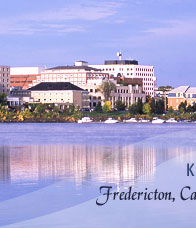Immigrants and jobs, let’s open things up in Nova Scotia
04/16/2017
On a recent immigration “mission” to London, Nova Scotia government officials went looking for a few good men and women — one of whom, they hoped, might take a job managing a fast food outlet in Yarmouth.
Lots of other jobs also go begging for good applicants in Nova Scotia.
Indeed, one of the enduring ironies on this battered and beautiful old ship of a province is that we have high unemployment combined with a shortage of willing (or qualified) workers to fill vacant positions.
If you own a fish plant, or a tourism business, or a fruit farm, chances are you’ll have a tough time attracting reliable (let alone experienced) employees.
If you manage a tech company large or small, get ready to compete inside a global sector with an insatiable appetite for new IT grads.
The endless quest to find burger flippers in Nova Scotia casts light on the contretemps over the skilled (and sometimes foreign) workers Irving Shipbuilding is hiring for its big combat and patrol ship program on the Halifax waterfront.
Pardon me for being glib, but if it’s hard to find fast food employees in Nova Scotia, it’s probably more difficult to track down all the specialized firms and skilled employees you need to complete one of the largest shipbuilding projects on the planet.
Heck, I figure if Irving recruiters could march up the hill in Halifax’s north end, and find the workers it needs in a door-to-door recruitment drive along Acadia Street, it wouldn’t be posting job ads in Gdansk or hiring Spanish sub-contractors.
Speaking of which, a great deal of blather has been uttered about a turnkey subcontract given to Spain’s Gabadi LC for outfitting the Arctic offshore patrol ships at the Halifax shipyard. Maybe the shipyard union can’t be blamed for protesting that some of Gabadi’s “fitters” (carpenters) took jobs that Canadians could do. But Irving got the context right when it said that 95 per cent of its 1,500-strong workforce is pure Canuck.
I’ll even risk saying that Gabadi was retained as a subcontractor (to build living quarters, etc.) because it did this sort of work before, and passed muster in the kind of rigorous review process that Irving would implement.
But there’s a bigger issue here — and it’s not where Irving finds its shipbuilders, but whether it can find them at all.
So if Jim Irving has to haunt Lech Walesa’s old stomping grounds at the Gdansk shipyards to find capable recruits, he should take his handshake and his big smile with him on an airplane, and head for Poland on a recruiting drive.
It’s simply not easy to find skilled workers — Canadian or foreign — and if you pressed shipyard union boss Steve Conrad on the matter, he might tell you employers like the Halifax shipyard have to launch a pretty intensive search for skilled workers in Canada before hiring internationally.
And it’s not just a matter of putting a sign in the window. You have to post the position in at least three places, and search around for a month for the Canadian worker you knew you’d never find in the first place.
Employers who want to hire temporary foreign workers go through a similar rigmarole. Under federal rules, they have to complete a Labour Market Impact Assessment, and pay the fee that goes along with it, before getting the help they need (or not).
Fortunately, public policy is creeping forward on foreign workers. This week, Irving was granted the right to recruit workers internationally under the federal government’s new Atlantic Immigration Pilot.
That’s good, because we need foreign workers at least as much as they need us. Better still if they come to Nova Scotia as immigrants and we keep them here.
Ray Ivany would tell you that Nova Scotians are starting to understand that we need immigrants, too. In short, Nova Scotia is gradually lifting its collective gaze from the navel region to the horizon. Or as it says in The Bible, “Lift up thine eyes to the hills, whence cometh the Ray.”
JIM MEEK
http://thechronicleherald.ca
|





